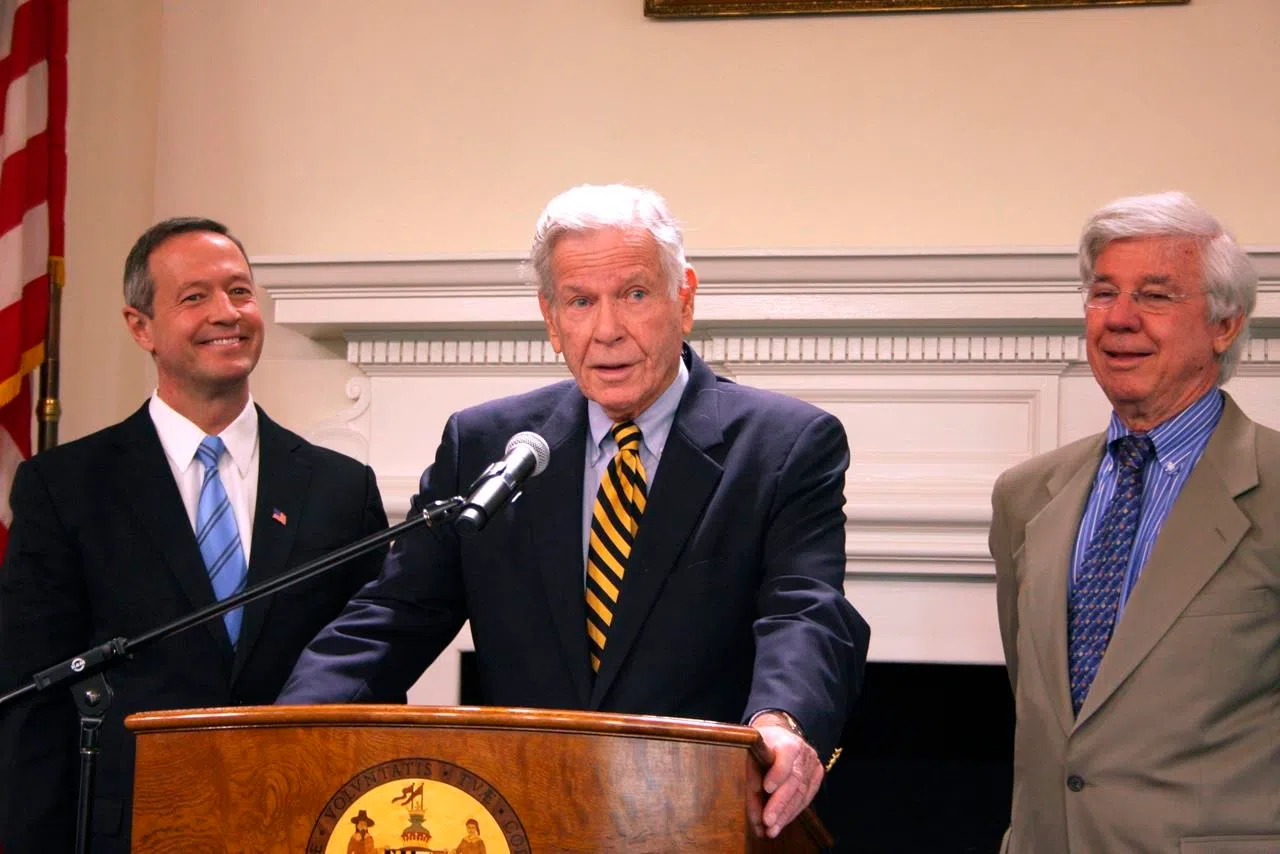
Ex-Maryland Gov. Harry R. Hughes dies at 92; served 2 terms
ANNAPOLIS, Md. — Former Maryland Gov. Harry R. Hughes, who prided himself on restoring public faith in the political process, died Wednesday. He was 92.
His daughter, Elizabeth Hughes, said Hughes had been in hospice.
“I was holding his hand,” she said. ‘He was a wonderful dad. He was a kind generous man, and he had a great sense of humour.’
In a statement on Hughes’ passing, Gov. Larry Hogan said flags will be flown at half-staff until sunset of the day of interment. Hogan described Hughes as “a longtime friend and Maryland legend whom I deeply admired.”


